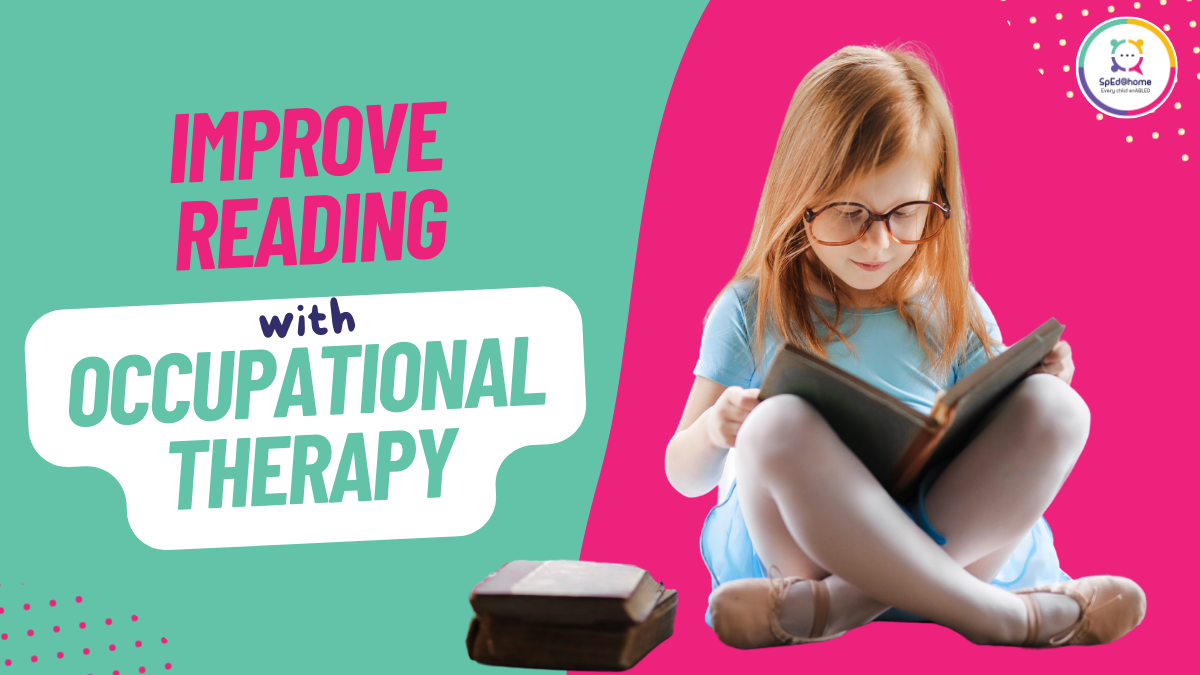Reading is an essential skill that opens the doors to knowledge, imagination, and personal growth. However, for some individuals, reading can be a challenging and frustrating task. Fortunately, occupational therapy (OT) offers a unique approach to address reading difficulties by improving underlying cognitive, sensory, and motor skills. In this blog post, we will explore how occupational therapy interventions can enhance reading abilities and empower individuals to become confident and proficient readers.
Understanding Reading Challenges
Reading difficulties can manifest in various forms, including difficulties with decoding, fluency, comprehension, and attention. These challenges may arise due to underlying issues such as visual processing deficits, sensory integration difficulties, motor coordination problems, or attention deficits. Occupational therapists are trained to assess and address these underlying issues, recognizing that reading involves the coordinated use of multiple skills.
Holistic Approach of Occupational Therapy
Occupational therapy takes a holistic approach to improve reading abilities. It focuses not only on the specific challenges related to reading but also on the overall development and functioning of individuals. Occupational therapists consider the unique needs and strengths of each individual and develop tailored intervention plans to address their specific difficulties. By targeting the underlying issues that contribute to reading challenges, occupational therapy can have a positive and lasting impact on reading abilities.
Sensory Integration and Visual Processing
Sensory integration plays a crucial role in reading. Occupational therapists use sensory integration techniques to enhance an individual’s ability to process and interpret information from their environment. For example, a child with sensory integration difficulties may struggle to filter out irrelevant sensory input while reading. Through occupational therapy, the child can engage in activities that promote sensory processing skills, such as sensory-based play or structured movement exercises. Additionally, occupational therapists also work on improving visual processing skills, including visual tracking, focusing, and visual memory, which are essential for efficient reading.
Motor Coordination and Fine Motor Skills
Reading requires precise and coordinated movements, both gross motor and fine motor. Occupational therapy can help individuals develop their motor coordination and fine motor skills, ensuring smooth eye movements, tracking, and efficient use of hands. Activities such as writing, drawing, and manipulating objects strengthen the fine motor skills needed for accurate letter formation, page turning, and using tools like pens and highlighters. By enhancing motor skills, occupational therapy promotes better engagement with reading materials.
Attention and Executive Functioning
Sustaining attention and managing executive functions are crucial for successful reading. Occupational therapists employ strategies to improve attention skills, such as providing structured routines, incorporating visual supports, and using sensory tools like fidget toys to enhance focus. Additionally, they work on strengthening executive functions, including planning, organizing, and self-regulation, which are essential for managing reading tasks effectively.
Environmental Adaptations
Occupational therapists also recognize the impact of environmental factors on reading abilities. They collaborate with educators and parents to create supportive environments that optimize learning. This may involve making adaptations to lighting, seating, or organization systems. By creating an environment that minimizes distractions and maximizes comfort, individuals can better focus on reading tasks.
Occupational therapy offers a comprehensive and individualized approach to improve reading abilities. By addressing the underlying cognitive, sensory, and motor skills, occupational therapists empower individuals to overcome reading challenges and develop a lifelong love for reading. Through their expertise and interventions, occupational therapists pave the way for enhanced reading skills, increased confidence, and improved overall academic success.














